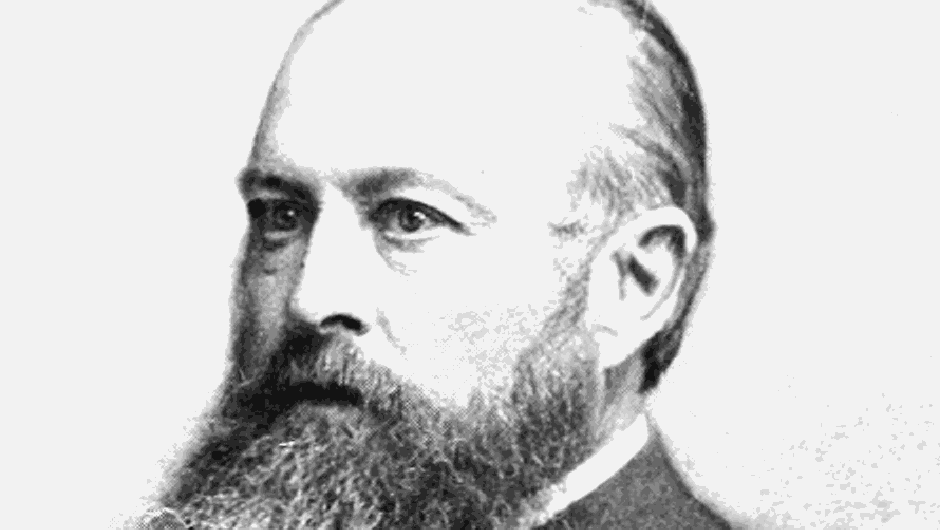Lord Acton’s Lost Work March 23, 2013
Author: Beach Combing | in : Modern , trackbackLord Acton is often reckoned one of the great historians of nineteenth-century England. Yet he published all too little despite tens of thousands of hours of study: a handful of essays and talks… His great book was to be have been a whig classic, a discussion of the growth of modern liberty. But that book was never written and we leave as its epitaph this extraordinary description from Sir Charles Oman who visited Acton’s study after his death, just before Acton’s 60,000 books were carted off to Cambridge University Library (at least they didn’t end up on ebay). Anyone who takes notes and endeavours to write and publish should read this and quiver.
I went down into Shropshire to look at that famous library before it was removed to Cambridge. There were shelves on shelves of books on every conceivable subject – Renaissance Sorcery, the Fueros of Aragon, Scholastic Philosophy, the Growth of the French Navy, American Exploration, Church Councils. The owner had read them all, and many of them were full in their margins with cross-references in pencil. There pigeon-holed desks and cabinets with literally thousands of compartments, into each of which were sorted little white slips with references to some particular topic, so drawn up (so far as I could see) that no one but the compiler could easily make out the drift of the section. I turned over one of two from curiousity – one was on early instances of a sympathetic feeling for animals, from Ulysses’ old dog in Homer downward. Another seemed to be devoted to a collection of hard words about stepmothers in all national literatures, a third seemed to be about tribal totems. Arranged in the centre of the room was a sort of block or altar composed entirely of unopened parcels of new books from continental publishers. All had arrived since Lord Acton’s health began to break up. These volumes were apparently coming in at the rate of ten or so per week, and the purchaser had evidently intended to keep pace with the accumulation, to read them all, and to work their results into his vast thesis – whatever it was. For years, apparently, he had been endeavouring to keep up with everything that was being written – a Sisyphean task. Over all there were brown Holland sheets, a thin coating of dust, the moths dancing in the pale September sun. There was a faint aroma of mustiness, proceeding from thousands of seventeenth and eighteenth-century book in a room that had been locked up since the owner’s death. I never saw a sight that more impressed on me the vanity of human life and learning.
No wonder writing blogs can be so cathartic, at least you get something out there… Other examples of unwritten classics: drbeachcombing AT yahoo DOT
***
31 March 2013: Borky writes in: There’s a story about Idries Shah which goes he was visiting some famous scholar who without once resorting to fact checking proceeded to spend what seemed like several hours demolishing Shah’s work quoting from memory such an enormous number of sources and references Shah felt he’d no choice but to sit there in awe taking his licks. When the scholar’d finished Shah expressed his admiration for the tour de force he’d been on the receiving end of marvelling at the depth of learning which allowed this chap to quote purely from memory sources Shah himself’d found difficult to track down some of which were so obscure he’d hitherto believed only he himself was aware of them. Then almost as an afterthought he asked “Incidentally if you’d been in my shoes how would you’ve responded…?” The scholar now proceeded to spend the next several hours demolishing his own arguments quoting still more sources and references again purely from memory. My take on Acton’s I suspect his reputation as a historian was based less on his insights or his capacity to communicate those insights than the fact anyone who ever dared argue with him risked being bombarded with so much data their minds’d expire on the spot simply from exhaustion trying to keep track of the facts. I don’t mean by this he was a bully in the way some alpha types simply have to win the argument to the degree they’ll misrepresent bluff or even outright lie but rather he was so clever he was mesmerized by collecting innumerable pieces rather than constructing jigsaws for the benefit of lesser mortals.’ Thanks Borky!



